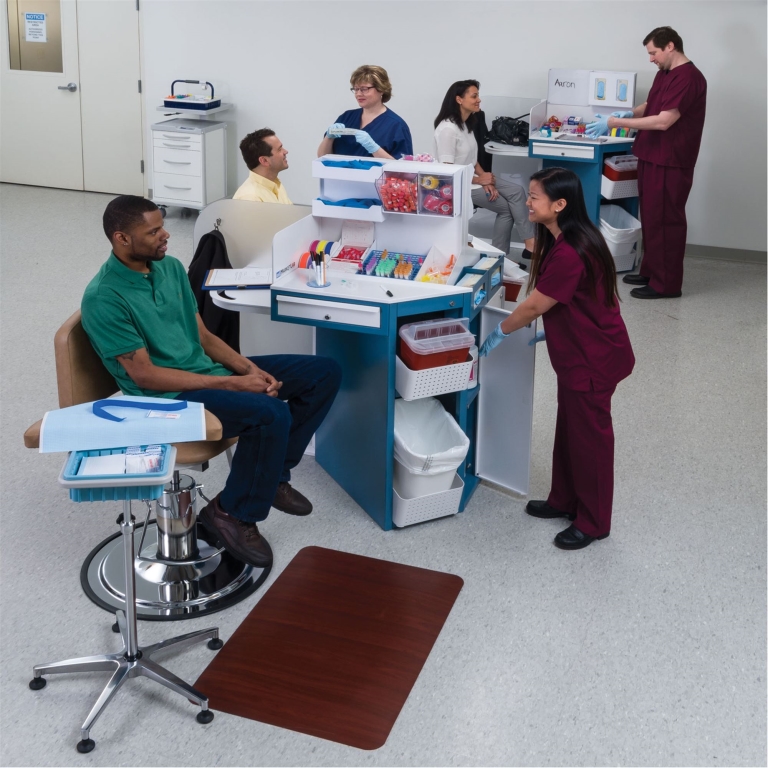Unlock Your Future: The Essential Guide to Medical Assistant Education and career opportunities
The healthcare field is one of the most dynamic and rewarding industries today. As the demand for medical services continues to grow, the need for skilled professionals is greater than ever. Among these roles, medical assistants are essential in ensuring smooth healthcare operations. This extensive guide will delve into medical assistant education, career opportunities, and practical tips to help you unlock a promising future in this rewarding field.
What is a Medical Assistant?
A medical assistant is a multi-skilled healthcare worker who performs both administrative and clinical tasks to support healthcare professionals, primarily physicians. Key responsibilities may include:
- Scheduling patient appointments
- Taking medical histories and vital signs
- Assisting in examinations and treatments
- Administering medications and injections
- Managing medical records and billing
Why Choose a Career as a Medical Assistant?
Choosing to become a medical assistant comes wiht numerous advantages, including:
- Job Stability: The Bureau of Labor statistics projects a 19% growth rate for medical assistants from 2019 to 2029, outpacing average job growth.
- Versatility: Medical assistants can work in various settings, including hospitals, clinics, and private practices.
- Personal Fulfillment: Contributing to patient care and supporting medical staff can be immensely rewarding.
- Short Education path: Many programs can be completed in less than a year, allowing you to enter the workforce quickly.
Educational Requirements for Medical Assistants
To become a medical assistant, pursuing formal education is typically required. Here’s a breakdown of the types of educational programs available:
| Program Type | Duration | Details |
|---|---|---|
| Certificate Program | 6 months - 1 year | Focuses on essential skills; often offered by community colleges and vocational schools. |
| Diploma Program | 1 year | More comprehensive; combines coursework and practical training. |
| Associate Degree | 2 years | In-depth training; includes general education courses and prepares for advanced roles. |
certification: Why It Matters
While certification isn’t strictly required, obtaining a certification can considerably enhance your employability and professionalism. The most recognized certifications for medical assistants include:
- Certified Medical Assistant (CMA) from the American Association of Medical Assistants.
- Registered Medical Assistant (RMA) from the American Medical Technologists.
- Certified Clinical Medical Assistant (CCMA) from the National Healthcareer Association.
Certifications often require passing an exam and may require continuing education to maintain the credential.
Career Opportunities and Salary Expectations
The career prospects for medical assistants are diverse and growing.Common workplaces include:
- Physician’s offices
- Hospitals
- Outpatient care centers
- Nursing homes
- Specialty clinics
Regarding salary,the median annual wage for medical assistants was approximately $35,850 in 2020,but this can vary based on factors like geographic location,experience,and specialty.
Benefits of pursuing a Medical Assistant Career
Being a medical assistant comes with several benefits apart from financial compensation:
- Flexible Hours: Opportunities for part-time and shift work.
- Career Growth: Advancement to roles like office manager or lead medical assistant.
- Specialization: Options to specialize in areas like pediatrics, phlebotomy, or geriatrics.
Practical Tips for aspiring Medical Assistants
Here are some essential tips to consider as you embark on your journey as a medical assistant:
- Research Educational Programs: Find accredited programs that fit your needs—consider online options.
- Gain Experience: Seek internships or volunteer positions to build your resume.
- Network: Connect with professionals in the field through seminars, workshops, and online forums.
- Stay Updated: Keep abreast of healthcare trends and advancements to enhance your competitive edge.
Case Studies: Success Stories from Medical Assistants
Many medical assistants have shared inspiring stories of their career journeys. Here’s a summary of two impactful experiences:
| Name | Background | Current Role | Key Takeaway |
|---|---|---|---|
| Sarah Jones | Completed a 1-year diploma | Lead Medical Assistant | Networking opened doors to promotions. |
| Michael Smith | Came from a customer service background | Clinical Coordinator | Transferrable skills from previous jobs can enhance your role. |
First-Hand Experience: A Day in the Life of a Medical Assistant
Many aspiring medical assistants wonder what a typical day looks like. Here’s a snapshot of a day in the life of Amanda,a certified medical assistant:
“I start my day by reviewing the schedule,preparing the rooms for patient visits,and ensuring all necessary supplies are stocked. By mid-morning, I’m helping the physician during examinations, taking notes, and managing patient records. After lunch, I focus on administrative duties like insurance claims and follow-ups. The best part of my day is interacting with patients and helping them feel comfortable in the office.”
Conclusion
The journey to becoming a medical assistant offers a unique blend of challenges, rewards, and opportunities for personal and professional growth. With the right education and commitment to your role, you can unlock a fulfilling future in healthcare. Whether you’re just starting or looking to advance in your career, the possibilities are endless. Embrace this chance to make a difference and secure your place in the ever-evolving field of healthcare.



